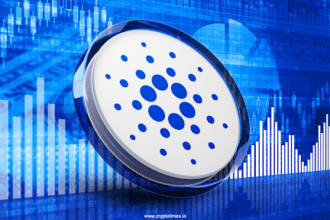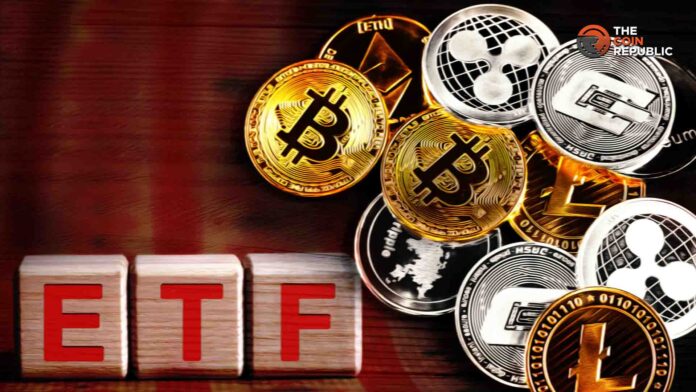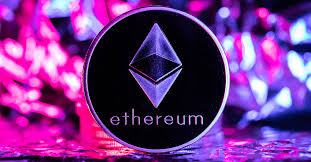How to make it with GMX
A very common and legit question by those recently red pilled in the GMX ecosystem is what is the best way to position themselves to capture the maximum upside.
This is why I believe it is a good time to dig into that issue. This article aims to:
- Outline my personal investing framework in the GMX world
- Lay out the different methods to grow your stack
- Crunch some numbers to gain insight about current future cashflows
Nothing less, nothing more.
This is not financial advise and these are just my thoughts as a community member of the project
1. GMX investing framework
I do not want to overextend myself in explanations, so long story short my thesis is that GMX is cashflow investment, like rental property but with a potentially bigger ROI and where stakers of the protocol are the landlords.
You can think about it like $GMX, esGMX MP provide 1 unit of fee accrual power each and every week 30% of all the revenue generated by the protocol is distributed proportionally to the fee accrual power of each staker
Fee accrual power = GMX staked + esGMX staked + MP stakedBesides, it has a massive addressable market and it is already a decent sized protocol in FDV terms, so while a x100 is possible, it won’t happen overnight. Patience and conviction are needed to reap the rewards in full.
Thus my investment framework for GMX is the following:
Maximize the future cashflows I will be entitled to in the future if the protocol succeeds and becomes one of the leading spot perp exchanges
What are the implications of this statement?
- Accumulate as much GMX, esGMX MPs as possible
- Stay liquid where possible, but giving priority to increasing fee accrual power
- Organic traction is needed to profit bigly from this strategy, the next x10 must be achieved through traction, hype alone is not enough at this stage
- Medium-long term investment mindset is required to execute this strategy
2. Methods to grow your stack
I will focus on the basic strategies direct yields, but in addition you could:
- Design complex strategies that build on top of the basic ones to boost the returns (p.e lend $GMX in Vesta, borrow VST and buy call options in Dopex)
- Compound yields to obtain higher returns in fee accrual power (p.e. staking esGMX to collect more MPs)
My suggestion would be to stay always on the safe side do a proper due diligence into the risk that each option presents beforehand.
a) Buy $GMX and stake in GMX (Medium-Risk)
It is the highest yielding strategy if your objective is to increase your fee accrual power as much as possible. If your investment thesis in GMX is similar to mine, I believe most of your stack should be parked here, specially if you want to avoid the hustle of managing your portfolio very actively
Current yields are:
- 10-15% APR in ETH/AVAX
- 20% APR in esGMX
- 100% APR in Multiplier Points (MPs)
All in all, around 130% APR in fee accrual power each year reinvesting the ETH/AVAX in buying GMX
b) Mint $GLP in GMX (Low-Risk)
Being a liquidity provider of the protocol is a good option for those that prefer a lower risk in exchange of not having as much exposure to the fee accrual power
Current yields are:
- 25% APR in ETH/AVAX
- 20% APR in esGMX
In short, around a 45% APR in fee accrual power.
c) Buy a GBC NFT to obtain esGMX (Medium-Risk)
GMX distributes each month proportionally 20.000 esGMX to $GMX stakers that hold at least 1 GBC in the same wallet. Currently the ratio is that around 1,2 esGMX are distributed monthly per 1000 GMX staked, so the APR will be very variable depending on the size of the $GMX stack
d) Option trading in Dopex (High-Risk)
Another option to grow your stack would be to enter into the realm of options as it offers several interesting alternatives:
- Write call options to collect premiums in the form of $GMX
- Leverage your long bet on $GMX buying call options and exercising them if they are “in the money”
- Hedge your exposure buying puts (and having more dry powder to buy dips in case $GMX goes down)
There are tons of good resources to go down the options rabbithole and this article from Dopex could be a good starting point. Strongly advise to become familiar with everything before risking your hard-earned money
Call writers have collected 55% APR in GMX on average (variable depending on which price your option was underwritten)
e) Yield farming on TraderJoe (Medium-Risk)
Some people might prefer to have a direct exposure to a couple of assets instead of a basket of them ($GLP) and be fully exposed to the market (without stables), and in that case, there is an incentivised farm GMX/AVAX in TraderJoe that could be a good option
Current yield is 47% APR so really good considering is all liquid and could serve to buy $GMX. Main risk is the usual suspect, the Impermanent Loss that could eat into a good chunk of your profits or even making it unprofitable. Check this thread to get familiar with the concept if you are not already
f) YieldYak farm (Medium-Risk)
YieldYak designed a couple of pools for $GMX/$GLP that incorporated a very interesting model. I will focus on the $GMX one as the mechanisms are very similar and could be inferred
Basically, YieldYak has built a vault where users can deposit their $GMX and YieldYak will stake it for them in gmx.io. As we have previously remarked, the $GMX staking generates both ETH/AVAX rewards esGMX but the esGMX is not tradable, so when users withdraw from YieldYak vault they are not getting their esGMX that will remain staked, so in given time, very possibly the YieldYak vault will generate more liquid rewards than the GMX one, but at the cost of not receiving esGMX, so its up to everyone to decide what do they prefer
Current APR around 10% in AVAX
g) Deposit $GMX into Vesta Finance (Medium-Risk)
Vesta Finance has recently open a vault that allows users to borrow $VST (Vesta stablecoin) against their collateral in $GMX, this could be a good option for users that need liquidity in a certain moment but don’t want to sell $GMX and be outpriced of their GMX make it stack. Minimum collateral ratio is 150%, so I recommend being careful to avoid the risk of being liquidated in the event of a crash in the GMX price
3. Current future cashflows
The objective of this article is not to speculate on the organic growth of the protocol nor the price action of $GMX, but to provide some insight on how the numbers would look like at given trading volumes
The equation that rules how much ETH/AVAX is going to be received per unit of FAP is the following:
Fees 1 unit of FAP = (30% x GMX revenue) / Total FAPWhere:
- FAP is the Fee Accrual Power (GMX + esGMX + MP)
- 1 unit of FAP is either one GMX, esGMX or MP
Therefore we need to estimate the Total FAP and the GMX revenue based on the trading volume
For the sake of simplicity we will assume that the max amount of GMX + esGMX tokens in circulation through 2022 will be 10M tokens, don’t want to delve into the details too much, but if you are curious about how I got this number, check this thread
Also, we will assume that the max amount of Multiplier Points (MPs) will be 5M tokens, quite realistic assumption taking into account that every time someone unstakes either GMX or esGMX that MPs are burned. This number could increase in the future if the team decides to increase the max amount of MPs per account, which AFAIK, right now is set to be equal to the GMX + esGMX staked in the wallet
Total FAP = GMX + esGMX + MPs = 15M unitsMoreover, we know based on historical data the relationship between trading volume in the platform and GMX revenue in average. It fluctuates depending on the swap/perp ratio on the period etc but will keep it simple
GMX revenue ($) = 0,00147 x Trading Volume ($)So we can plot how much $ we would be getting yearly per GMX/esGMX/MP in each of the proposed daily trading volume scenarios.
Current volume average sits around 200-300M$ daily to serve as reference
I have used Binance volume numbers as best case scenario, quite unrealistic at the moment but serves to prove the point that cashflows could get really juicy if enough traction is achieved. Easier said than done, but it is important to keep the objective on sight

At DyDx volume, which is around the $2B daily mark, a GMX staker with 1000 GMX staked for a whole year would obtain $32k. Not bad at all right?
To sum up the article:
- GMX is one of the very few cashflow investments in crypto
- The play is to accumulate as much Fee Accrual Power (FAP) as possible
- There are many ways to grow our stack, and many more will come soon
- Be patient, and keep the eye on the price
Thanks for reading, hope you enjoyed it!

Disclaimer: The content of this article solely reflects the author's opinion and does not represent the platform in any capacity. This article is not intended to serve as a reference for making investment decisions.
You may also like
Cardano Surpasses Bitcoin and Ethereum in Institutional Inflows

VIPBitget VIP Weekly Research Insights
In recent weeks, rising risk-averse sentiment and declining demand for leverage have led to a sharp drop in yields across Earn products. On major DeFi platforms, stablecoin yields have fallen below 4%, while on centralized exchanges, yields on stablecoin-based Earn products now hover around 2%. In contrast, Bitget HodlerYield offers users a 10% APR on stablecoins, with no 7-day cooldown for withdrawals or claims. Funds can be deposited and redeemed instantly, offering greater convenience and flexibility.

Bitwise’s Crypto ETF Strategy Amid Market Turmoil
Bitwise has introduced three new actively managed ETFs focused on generating income from crypto-related stock volatility. The crypto ETFs use synthetic covered call strategies to collect premiums while limiting exposure to sharp upward price movements. IMST targets Strategy’s volatile stock to generate monthly income through advanced algorithmic options trading.

Ethereum Price Approaches Resistance—Will It Smash Through?

